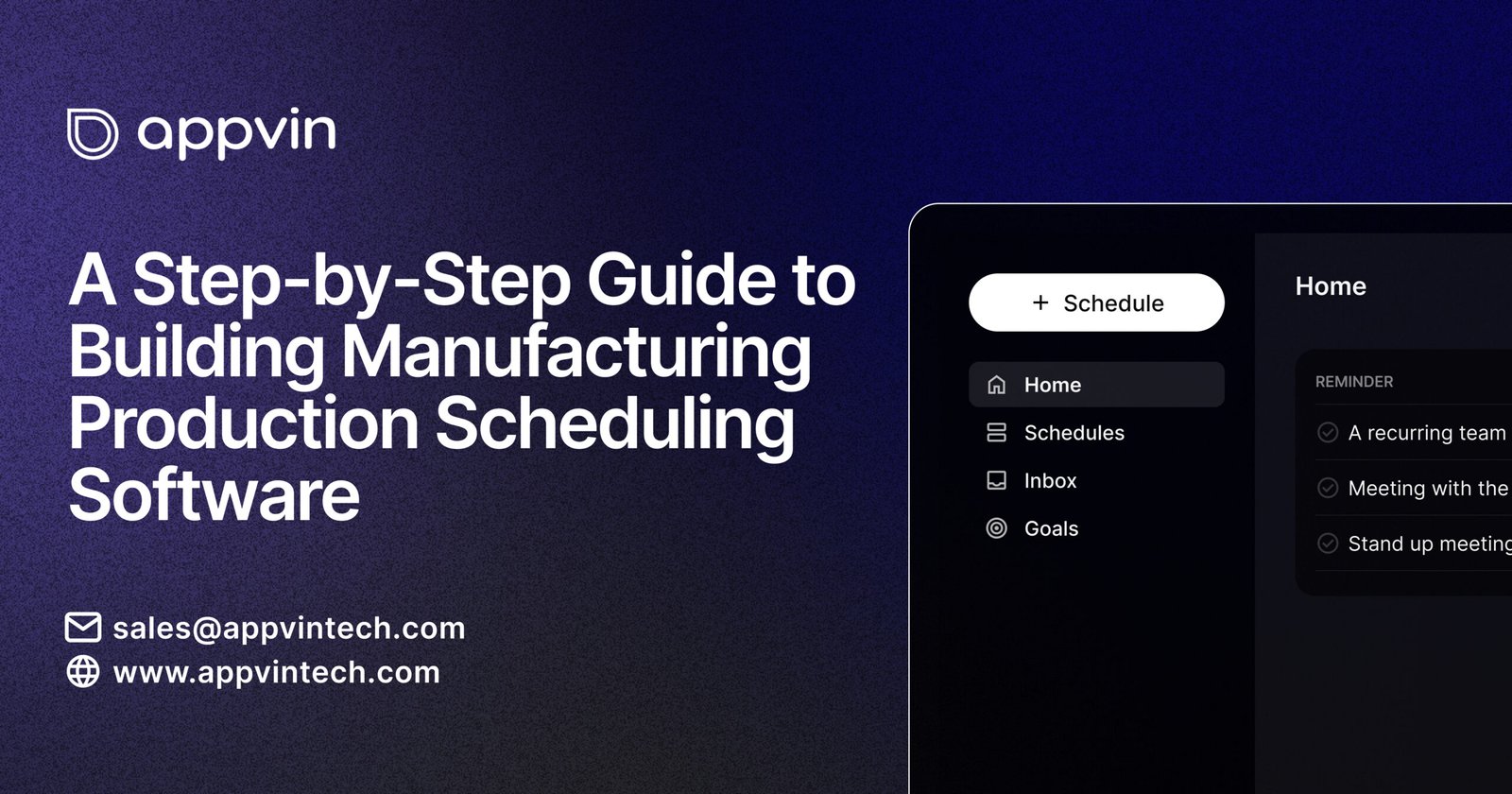Manufacturing production scheduling software is a modern innovation designed to optimize production flow, enhance operational efficiency, and minimize downtime. This article explores the development process step-by-step, focusing on critical features, considerations, technologies, and cost implications.
Importance of Production Scheduling Software
Manufacturers face challenges like complex resource management, demand forecasting, and inventory optimization. Production scheduling software addresses these challenges, enabling just-in-time production, reducing operational costs, and increasing throughput.
Key Benefits:
- Real-time Insights: Centralized dashboards facilitate better decision-making.
- Automation: Reduces human error through automated scheduling.
- Scalability: Elastic systems adapt to manufacturing requirements.
Manufacturing Production Scheduling Software Features
- Dynamic Scheduling
Flexible systems adapt to changing production needs while maintaining resource synchronization. - Inventory Management
Efficient tracking of raw materials and finished products. - Resource Optimization
Enhances labor, equipment, and material utilization. - Predictive Analytics
AI-driven analytics predict demand and maintenance schedules. - Cross-Platform Compatibility
Software designed for both desktop and mobile platforms, a necessity for cross-platform app development projects. - ERP System Integration
Seamlessly integrates with existing enterprise app development services, boosting overall functionality.
Steps in Production Scheduling Software Development
- Requirement Analysis
- Identify workflow pain points.
- Define primary objectives, such as reducing downtime and enabling auto-scheduling.
- Designing and Prototyping
- Create wireframes for user interfaces.
- Prioritize user-friendly navigation.
- Technological Stack Selection
- Use frameworks like React Native for cross-platform mobile application development.
- Choose cloud solutions for scalability and remote access.
- Core Development
- Focus on scheduling, inventory, and reporting modules.
- Use APIs for external system integrations like ERP.
- Testing and Quality Assurance
- Perform stress testing under high workloads.
- Ensure compliance with manufacturing industry standards.
- Deployment and Integration
- Implement software in phases.
- Provide training for maximum utilization.
Technology Stack Recommendations
A robust technology stack ensures effective software development:
- Front-end: Angular, React for web applications.
- Back-end: Node.js, Python, or Java for server-side functionality.
- Database: PostgreSQL or MongoDB for real-time data management.
- Cloud Services: AWS or Microsoft Azure for scalability and reliability.
Tip: Partner with a Mobility App Development Services Company for feature-rich mobile solutions.
Development Cost Estimations
The cost of production scheduling software depends on complexity and features:
- Small projects: $50,000–$100,000.
- Enterprise solutions: $200,000–$500,000.
Investing in experienced developers ensures a higher ROI with robust and scalable solutions.
AppVin Technologies
At AppVin Technologies, we specialize in custom software development tailored for manufacturing industries. We build cross-platform application services with scalable, high-performance production scheduling tools that integrate seamlessly with ERP and enterprise tools, ensuring your business is future-ready.
Embracing the Future
Production scheduling is no longer a luxury but a necessity. With advancements in EV charging software, IoT, and AI, manufacturers can achieve unparalleled efficiency. Partner with AppVin, a technology leader, to stay ahead in the competitive market.



